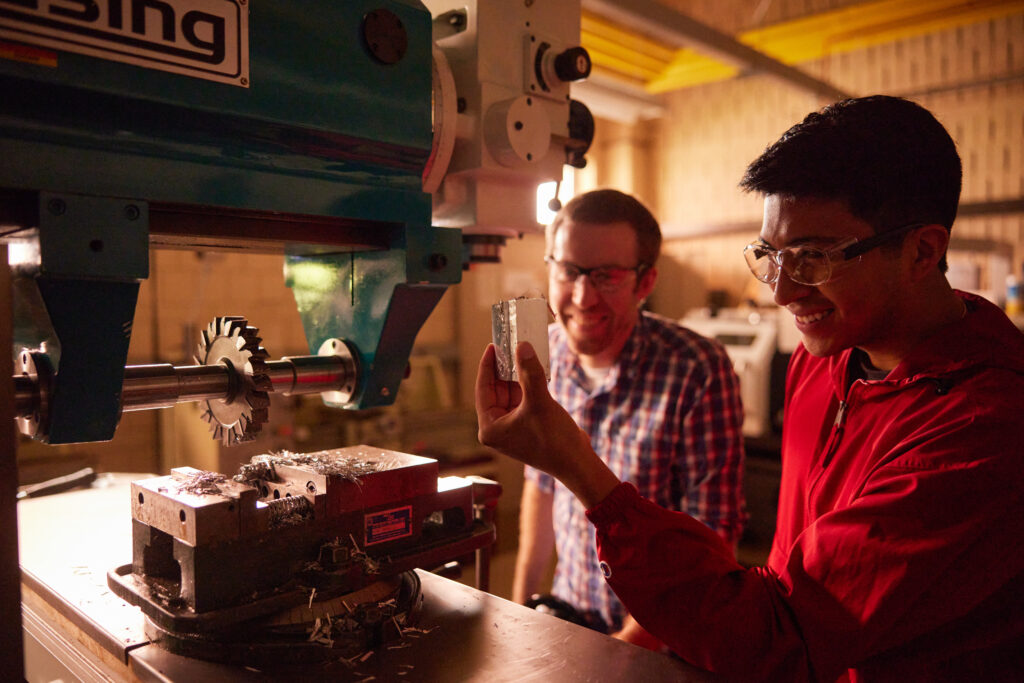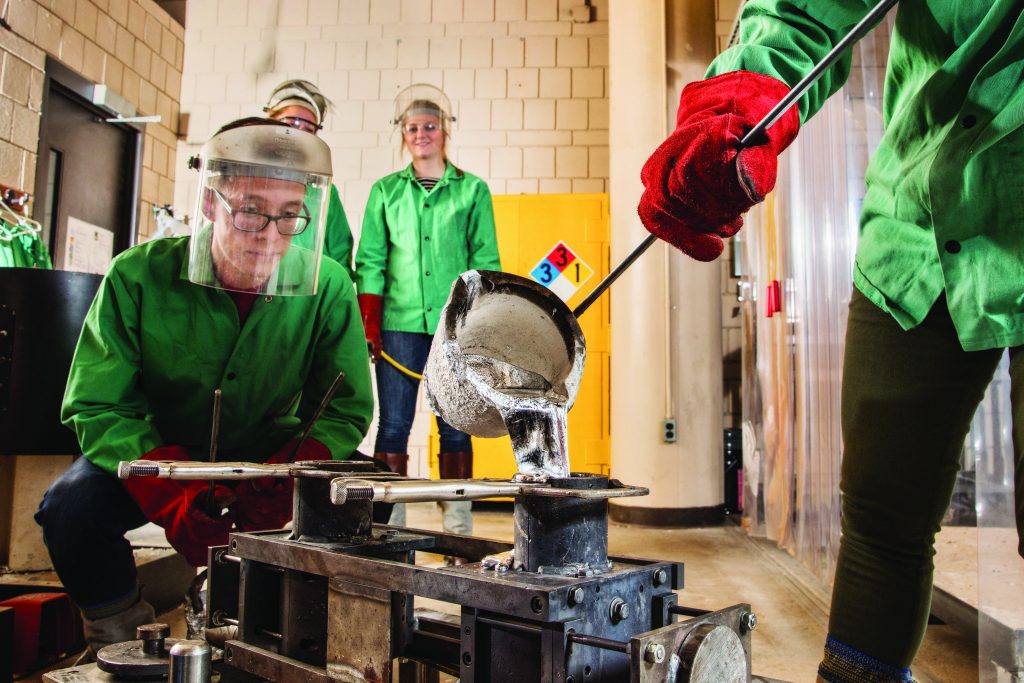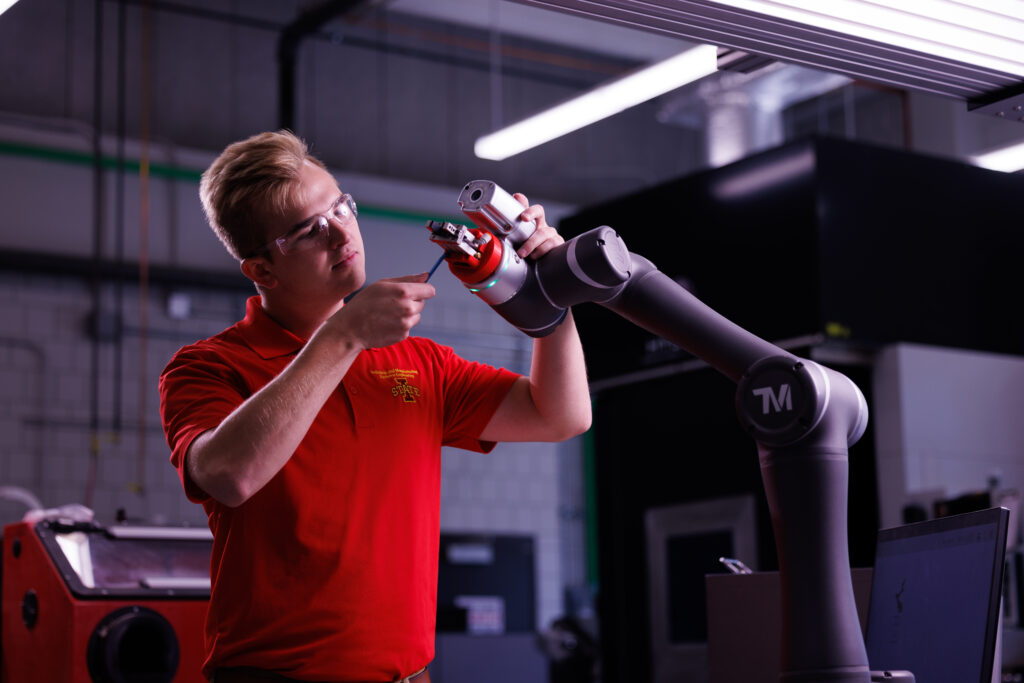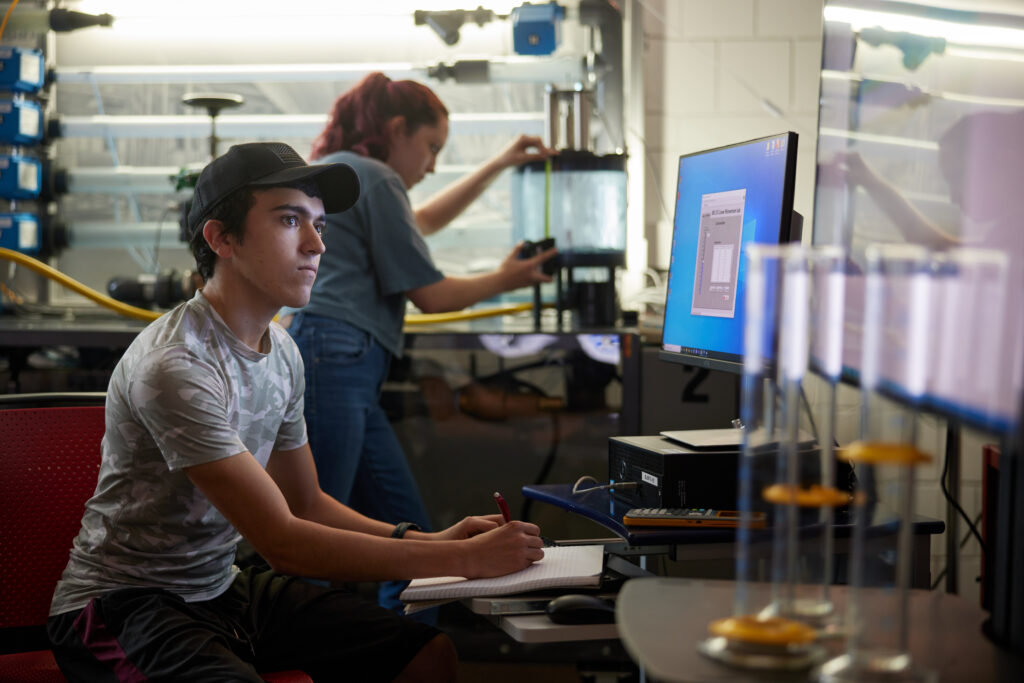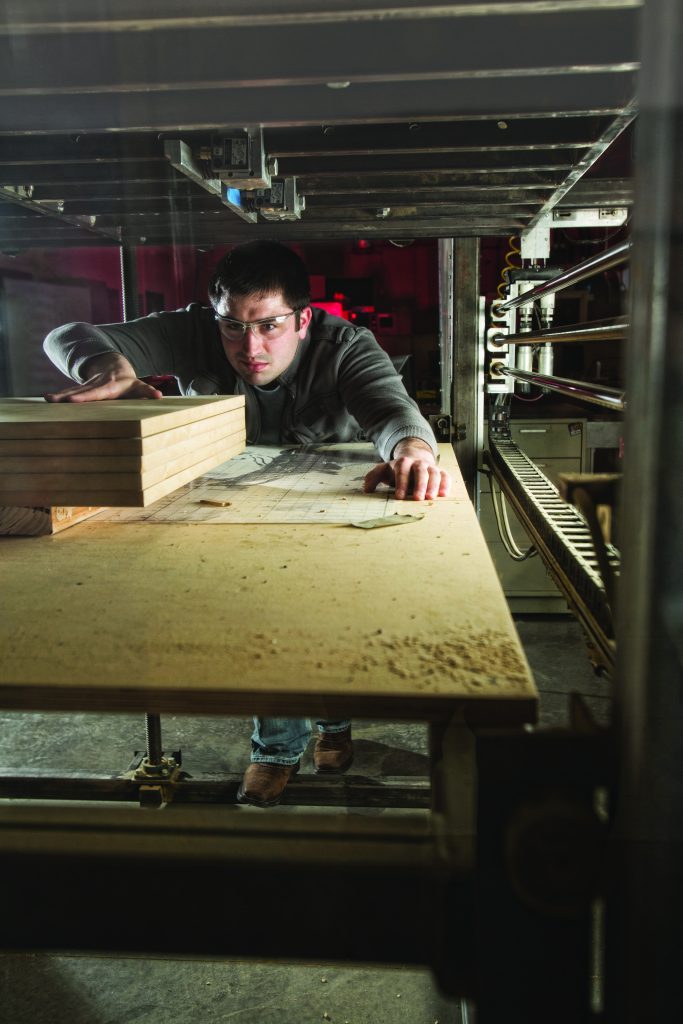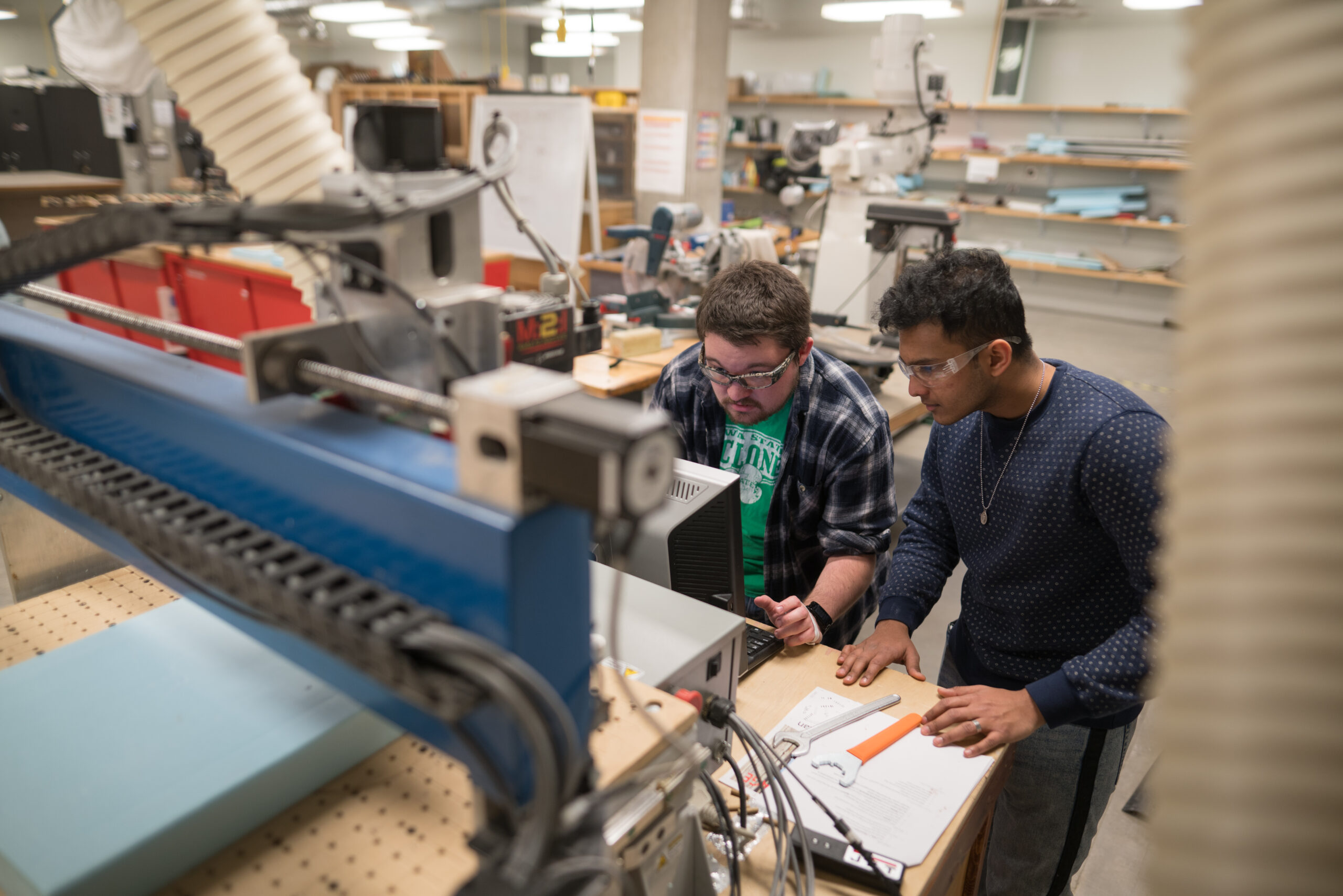Your Path In The Making
The industrial engineering department is small enough for you to have personal attention from faculty, but large enough to choose from a variety of educational opportunities.
Areas of study: Learn the fundamentals of the profession and develop specific expertise in areas that interest you:
- Advanced manufacturing: Plan a successful manufacturing operation by studying processes, production systems and quality-control procedures.
- Systems engineering and engineering management: Learn to manage a successful company by taking courses like supply chain management, technical sales, economics, marketing and accounting.
- Human factors and ergonomics: Study the relationship between people and their physical environment, design safer and more productive workspaces.
- Operations research and data analytics: Find the best solution for improving a system by optimizing inventory, scheduling, transportation, smart online sales and renewable energy.
Industry careers: If you want a flexible career path, industrial engineering is for you. Consider these industry products and services that people use every day and where these career paths can take you:
- Manufacturing: Help make better quality products that last longer and are produced at a competitive price
- Health care: Save lives by ensuring quality and consistency in producing medical devices, designing hospital processes that allow people to see doctors sooner, and make treatments more efficient and effective.
- Technical sales: Companies hire industrial engineers to sell their technical products to other companies, because they use their problem solving skills to show how the products can add value. Combine your technical and communication skills to meet this industry-wide need.
- Transportation: Help airlines determine the best schedules so that customers are satisfied with travel options while reducing operating costs.
- Financial analytics: Help financial services companies make decisions under uncertainty to maximize stakeholder benefits while reducing operating costs.
You won’t just hear about concepts. Our laboratories and industry projects provide many opportunities for hands-on learning including:
- Applied ergonomics
- Machining processes
- Metalcasting
- Metrology
- Operations research and production systems
- Rapid manufacturing and prototyping
- Technical sales engineering
- Welding processes
- Industrial automation systems


